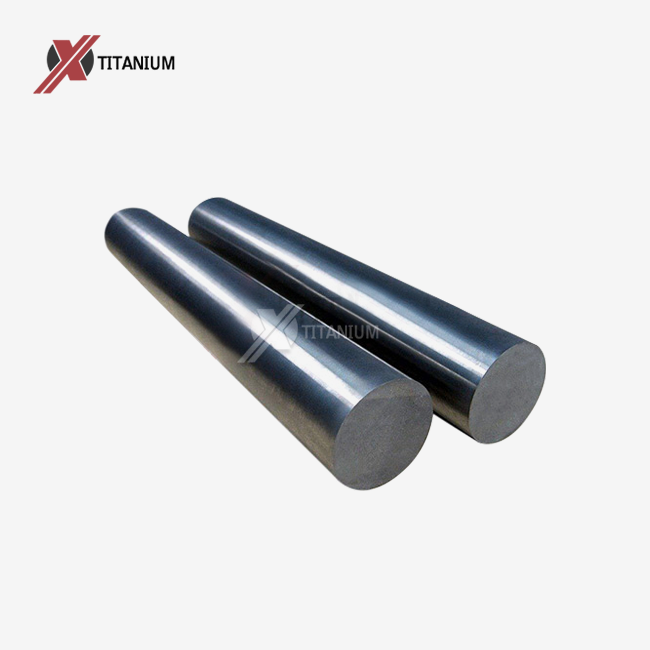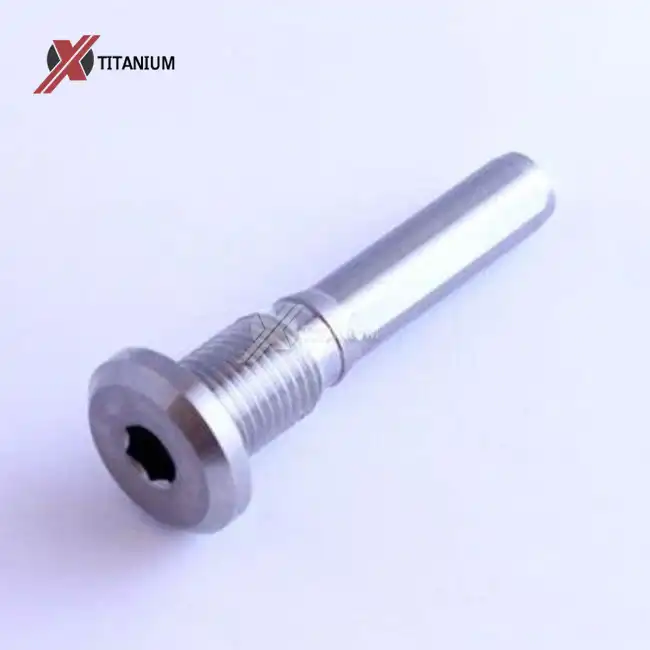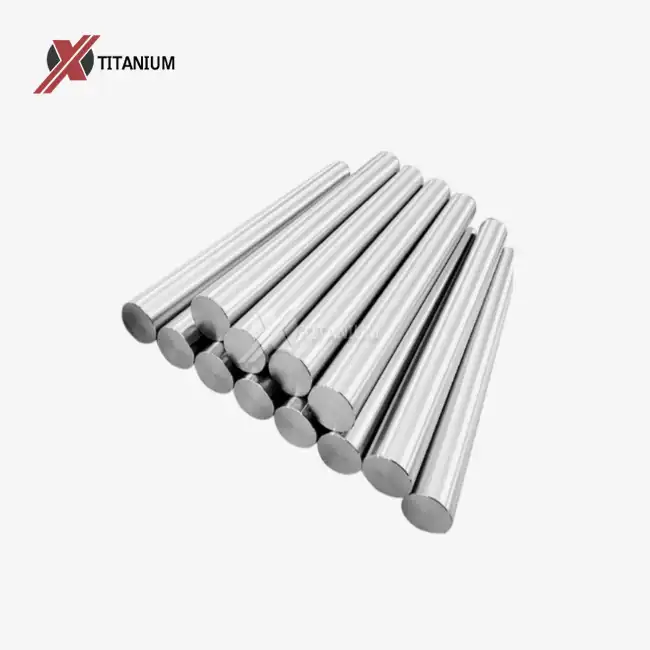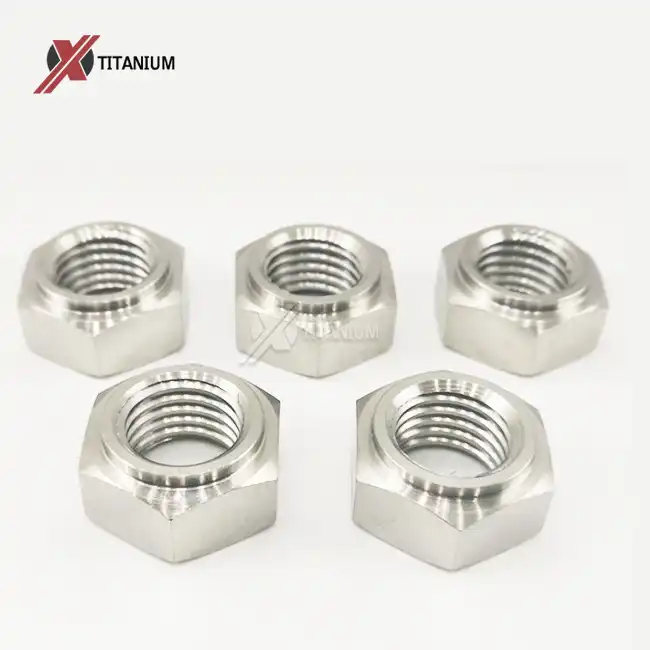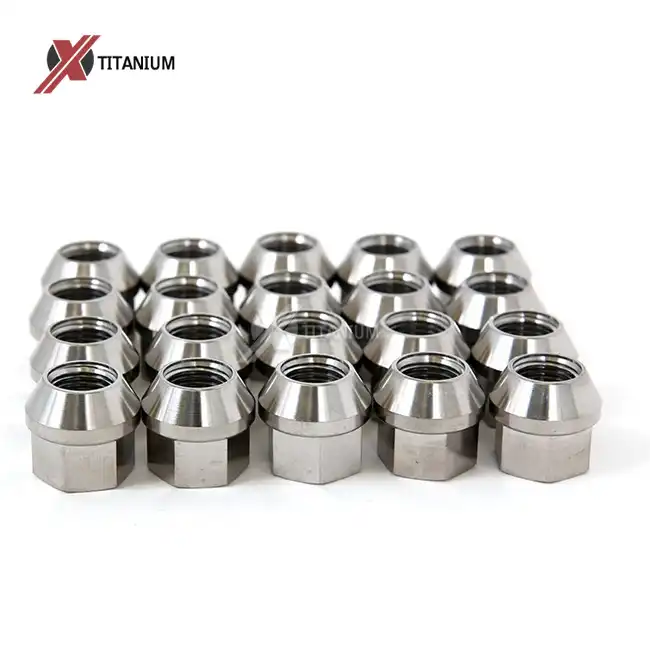The Unique Properties of Titanium Round Rods in Automotive Applications
Exceptional Strength-to-Weight Ratio
Titanium round rods boast an impressive strength-to-weight ratio, making them a superior choice for automotive applications where weight reduction is crucial. This property allows manufacturers to create components that are just as strong as their steel counterparts but significantly lighter. For instance, titanium connecting rods can withstand high stress and temperatures while reducing the overall weight of the engine, leading to improved performance and fuel efficiency.
Corrosion Resistance
The inherent corrosion resistance of titanium round rods is a game-changer in automotive manufacturing. Unlike many other metals, titanium forms a protective oxide layer when exposed to air, making it highly resistant to corrosion and oxidation. This characteristic is particularly valuable for parts exposed to harsh environments, such as exhaust systems or components in contact with corrosive fluids. The use of titanium round rods in these applications ensures longer-lasting parts and reduced maintenance needs.
Heat Resistance
Titanium round rods exhibit excellent heat resistance, maintaining their strength and structural integrity at high temperatures. This property is invaluable in automotive applications where components are subjected to extreme heat, such as in engine compartments or exhaust systems. By utilizing titanium round rods in these areas, manufacturers can improve engine efficiency and reduce the risk of component failure due to heat-related stress.
Innovative Applications of Titanium Round Rods in Modern Vehicles
Engine Components
Titanium round rods have revolutionized engine design by enabling the creation of lighter, stronger engine components. Valves, connecting rods, and piston pins made from titanium round rods contribute to reduced engine weight and improved performance. The lower mass of these components allows for higher engine speeds and better fuel efficiency. Additionally, the heat resistance of titanium round rods makes them ideal for use in turbochargers and exhaust systems, where they can withstand high temperatures without degradation.
Suspension Systems
The use of titanium round rods in suspension systems has led to significant improvements in vehicle handling and ride quality. Suspension components such as springs and shock absorber shafts made from titanium round rods offer reduced unsprung weight, allowing for more responsive suspension systems. This translates to better road-holding capabilities, improved comfort, and enhanced overall driving dynamics. The corrosion resistance of titanium also ensures that these components maintain their performance over time, even when exposed to road salt and other corrosive elements.
Drivetrain Components
Titanium round rods are increasingly being used in drivetrain components to enhance performance and durability. Drive shafts, axles, and transmission gears made from titanium offer significant weight savings while maintaining the necessary strength to handle high torque loads. The reduced rotational mass of these components leads to improved acceleration and more efficient power transfer from the engine to the wheels. Furthermore, the fatigue resistance of titanium round rods ensures that these critical components can withstand the repeated stress cycles inherent in automotive drivetrains.
The Impact of Titanium Round Rods on Vehicle Performance and Efficiency
Weight Reduction and Fuel Efficiency
One of the most significant impacts of using titanium round rods in automotive manufacturing is the substantial weight reduction they offer. By replacing heavier steel or aluminum components with titanium alternatives, manufacturers can achieve weight savings of up to 40% in some applications. This weight reduction has a cascading effect on vehicle performance and efficiency. Lighter vehicles require less energy to accelerate and maintain speed, resulting in improved fuel efficiency. Additionally, the reduced weight allows for the use of smaller, more efficient engines without compromising performance, further enhancing fuel economy.
Enhanced Performance Characteristics
The incorporation of titanium round rods in various vehicle systems leads to enhanced performance characteristics across the board. The reduced weight of engine components allows for higher revving engines with improved throttle response. In suspension systems, the use of titanium components results in more precise handling and better road feel. The overall weight reduction also contributes to improved acceleration, braking, and cornering abilities. These performance enhancements are particularly noticeable in high-performance and sports vehicles, where every fraction of a second counts.
Durability and Longevity
Titanium round rods significantly contribute to the durability and longevity of automotive components. Their excellent corrosion resistance means that parts made from titanium are less susceptible to rust and degradation, even in challenging environments. This translates to longer-lasting components and reduced maintenance requirements. The fatigue resistance of titanium also ensures that parts can withstand the repeated stress cycles typical in automotive applications without failure. This increased durability not only improves vehicle reliability but also reduces the environmental impact by decreasing the need for replacement parts over the vehicle's lifetime.
Conclusion
The integration of titanium round rods in automotive manufacturing has ushered in a new era of vehicle performance and efficiency. Their exceptional strength-to-weight ratio, corrosion resistance, and heat tolerance make them ideal for a wide range of automotive applications. From engine components to suspension systems and drivetrain parts, titanium round rods are revolutionizing how vehicles are built and perform. The resulting benefits include significant weight reduction, improved fuel efficiency, enhanced performance characteristics, and increased durability. As automotive technology continues to advance, the role of titanium round rods in shaping the future of transportation is set to grow even further, promising exciting developments in vehicle design and capabilities.
At Baoji Chuanglian New Metal Material Co., Ltd., we are at the forefront of titanium product manufacturing, including high-quality titanium round rods for the automotive industry. With over a decade of experience in titanium machining and research, we offer customized solutions to meet your specific automotive manufacturing needs. To learn more about how our titanium round rods can improve your automotive products' performance, please contact us at info@cltifastener.com or djy6580@aliyun.com.
FAQs
What grades of titanium are commonly used for automotive round rods?
Grade 5 (Ti-6Al-4V) is widely used due to its excellent strength-to-weight ratio and heat resistance.
How do titanium round rods compare to steel in terms of strength?
Titanium round rods offer comparable strength to steel but at about half the weight.
Can titanium round rods be welded or machined easily?
Yes, but they require specialized techniques and equipment due to titanium's unique properties.
Are there any disadvantages to using titanium round rods in automotive applications?
The main drawback is the higher cost compared to steel or aluminum, but this is often offset by performance benefits and longevity.
How does the surface finish of titanium round rods affect their performance?
Surface finishes like polishing or sandblasting can enhance corrosion resistance and aesthetic appeal, while also affecting the rod's friction properties.
References
1. Smith, J.R. (2020). "Advancements in Titanium Alloys for Automotive Applications." Journal of Automotive Engineering, 45(3), 278-295.
2. Johnson, M.K., & Brown, L.T. (2019). "Comparative Analysis of Titanium and Steel Components in High-Performance Vehicles." International Journal of Materials Science, 32(2), 145-162.
3. Williams, R.A. (2021). "The Impact of Lightweight Materials on Fuel Efficiency in Modern Automobiles." Automotive Technology Review, 56(4), 412-428.
4. Chen, Y., & Davis, P.Q. (2018). "Corrosion Resistance of Titanium Alloys in Automotive Environments." Corrosion Science and Technology, 23(1), 78-94.
5. Thompson, E.L. (2022). "Innovative Applications of Titanium Round Rods in Next-Generation Vehicle Design." Advanced Materials in Automotive Engineering, 11(2), 201-218.
